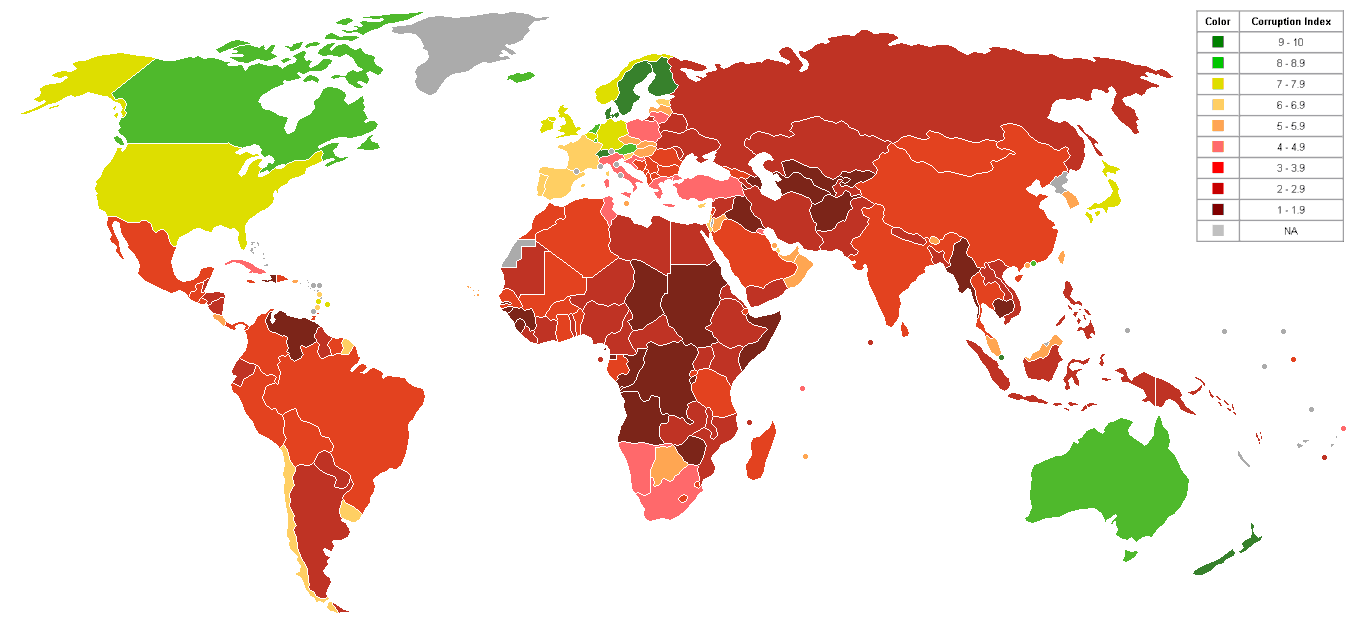
In some parts of the world the phenomenon simply is a part of everyday life and the "accepted" (PR) culture in general. Thus even recognizing it, not to mention changing it, is extremely difficult. There's always the hard question about what kind of action can we actually call 'corruption', too... This applies to all countries though.
I've personally been wondering, to what extent do economical and cultural reasons contribute to the amount of corruption. I found this academic paper written by British economics ( http://129.3.20.41/eps/pe/papers/0406/0406004.pdf ), which makes interesting references to another studies and their findings on the subject (p. 6):
" To a large extent, it is difficult to separate the historical factors from the political and judicial factors since the effectiveness of the judicial system is dependent on the colonial heritage of the country in question. La Porta et. al. (1999) show that those countries that were former colonies of Britain and who adopted the common law system appear to have more effective judicial systems than those who adopted civil law systems associated with former colonies of continental European countries. Treisman (2000) also explores the direct influence of historical tradition on perceived corruption showing that former British colonies or dominions appear to reduce perceived corruption in excess of the role played by the common law system. "
The whole section on social and cultural factors is awfully interesting, as they also note for example how Catholicism - the largest religion in South America - " reduces the quality of government and, by extension, may reduce the deterrence of corruption". (p. 6)
Well, that should shed some light on the mystery of South America's PR field and its corruption-plagued reputation. At least I'm feeling very enlightened! Although corruption could indeed be found anywhere, it's still reasonable to think about why we associate it with some countries more often than others.
( Whoa, check that out, I just managed to create some links! Oh joy!)
Written by: Iina Julkunen




:) Great links, Iina! *Applause*
ReplyDelete:Katja / Group 9